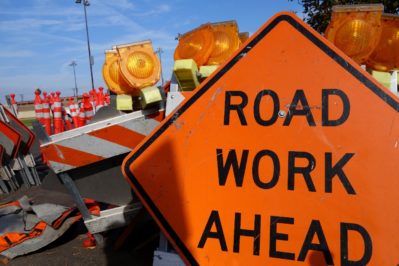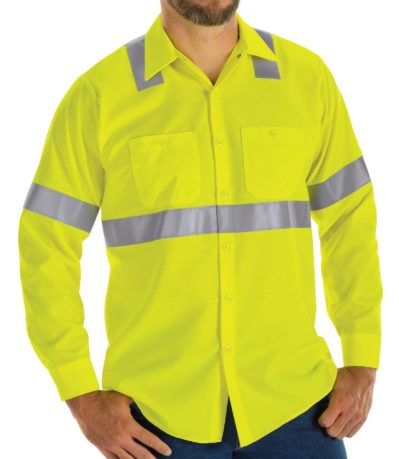Highway and Road Worker Safety Tips

According to the Centers for Disease Control and Prevention (CDC), 1,844 workers were killed at road construction sites from 2003 to 2017. Many thousands more are injured every year. With the number of highway construction and road resurfacing projects on the rise, even more workers will be in the field. Yet accidents and injuries are not destined to increase. Solutions such as a high-visibility safety vest can lower the risk, as can:
Training
Road workers should be educated on hazards they face at an individual worksite. When educated on safety procedures, they’ll know how to execute them properly. Training materials should include checklists that cover all essential precautions and federal and state regulations.
Work Site Safety Program
Site-specific programs should account for all hazards on the site and provide solutions to mitigate them. Program elements should include inspection and maintenance schedules for equipment/materials, a response plan in case of accidents, safety training, and a plan for first aid/emergency care should an accident occur.
Planning
A traffic control plan establishes a way to alert motorists that a construction zone is ahead. It must also include an internal traffic control plan, as more highway workers are killed by construction vehicles than motorists. The biggest hazard is backing up construction vehicles.
Safety Meetings
A daily team safety meeting should start the day. Focusing on the day’s activities keeps everyone informed on the road safety precautions to take. Scheduled tasks, potential hazards, and other variables can change on a day-to-day basis.
Manage Traffic
Workers and equipment must be separated from traffic with some type of buffer. Traffic cones and barricades physically separate oncoming traffic from workers. Lighting helps with traffic safety as well. When necessary, redirect traffic farther away from work zones and clearly mark where each zone begins and ends.
Be Aware of Blind Spots

Construction vehicles can have large blind spots. This is a challenge in small work zones. You can reduce the risk of accidents with direct eye contact and visual communication with operators. Always signal an operator when approaching a construction vehicle. Crew members should understand all communication signals and know not to proceed until the equipment is off.
Hydration
Dehydration can lead to heat exhaustion and heatstroke. Workers should drink plenty of water or high-electrolyte liquids. Overexertion, sun exposure, and heat-related illnesses are risks that road construction workers face.
PPE/Safety Equipment
Personal safety equipment includes respirators, steel-toed shoes, and gloves. Earmuffs should be worn where there is a lot of construction noise. Hardhats and high-visibility clothing like fluorescent yellow jackets, vests, and shirts with reflective material should be worn.
Order High-Visibility Products from Prudential Overall Supply
One of the areas that Prudential Overall Supply can help with is industrial high-visibility workwear. Each site crew member is better off with a high-visibility safety shirt or reflective safety vest. Browse our protective uniform catalog, order our products, or contact us to learn more about our cleanroom services and other programs.